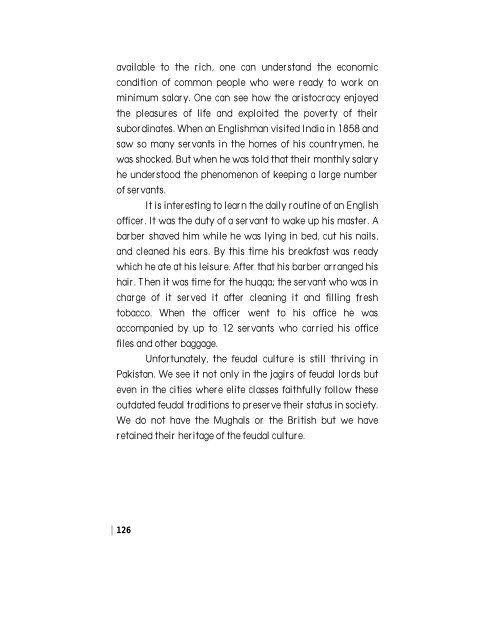You also want an ePaper? Increase the reach of your titles
YUMPU automatically turns print PDFs into web optimized ePapers that Google loves.
available to the rich, one can understand the economic<br />
condition of common people who were ready to work on<br />
minimum salary. One can see how the aristocracy enjoyed<br />
the pleasures of life and exploited the poverty of their<br />
subordinates. When an Englishman visited India in 1858 and<br />
saw so many servants in the homes of his countrymen, he<br />
was shocked. But when he was told that their monthly salary<br />
he understood the phenomenon of keeping a large number<br />
of servants.<br />
It is interesting to learn the daily routine of an English<br />
officer. It was the duty of a servant to wake up his master. A<br />
barber shaved him while he was lying in bed, cut his nails,<br />
and cleaned his ears. By this time his breakfast was ready<br />
which he ate at his leisure. After that his barber arranged his<br />
hair. Then it was time for the huqqa; the servant who was in<br />
charge of it served it after cleaning it and filling fresh<br />
tobacco. When the officer went to his office he was<br />
accompanied by up to 12 servants who carried his office<br />
files and other baggage.<br />
Unfortunately, the feudal culture is still thriving in<br />
Pakistan. We see it not only in the jagirs of feudal lords but<br />
even in the cities where elite classes faithfully follow these<br />
outdated feudal traditions to preserve their status in society.<br />
We do not have the <strong>Mughals</strong> or the British but we have<br />
retained their heritage of the feudal culture.<br />
126


